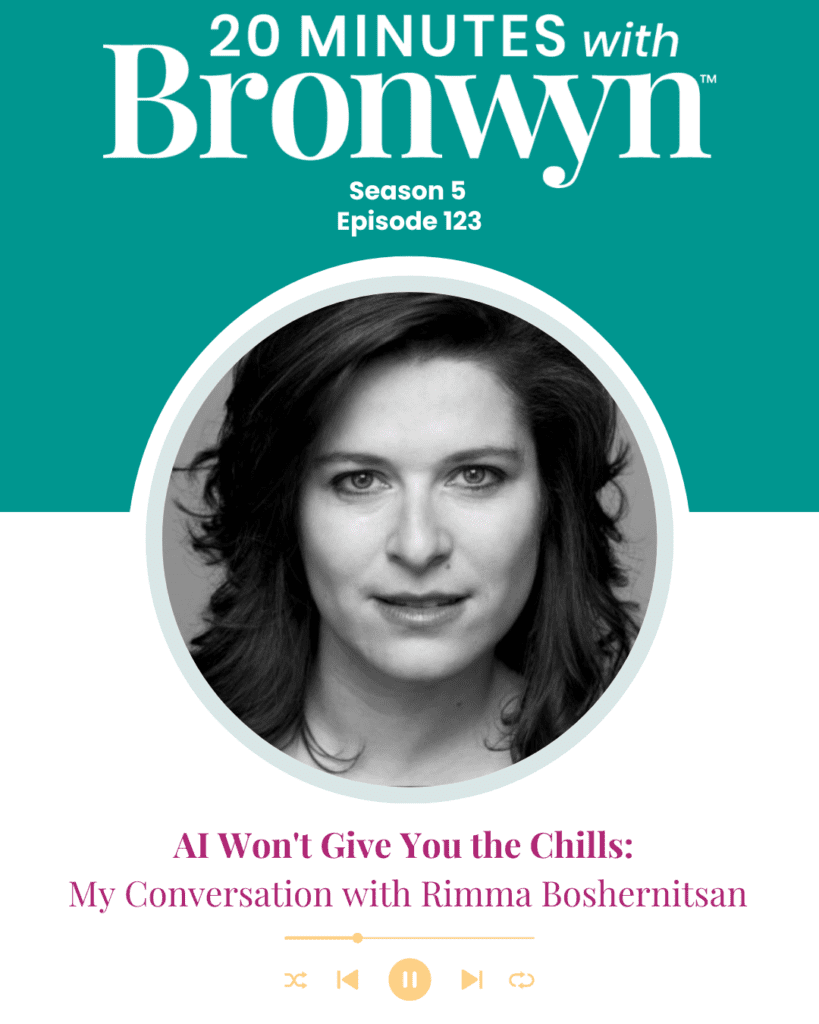There are few things that scare me as a public speaking coach, but this phrase does it every time:
“Yeah, once I memorize my presentation script, I’ll be good to go.”
This is the point when my circuits get jammed, and I want to reach across the table and shake my client and warn them with language as strong as I can muster…
DON’T. MEMORIZE. YOUR. TALK.
Here’s why: I’ve seen many an imperfect presentation, but very few actual train wrecks. Those special few—the truly disastrous—had one thing in common: Presenter brain freeze caused by a reliance on memorization.
What follows a brain-freeze is usually the longest silence imaginable. The audience watches as the speaker stands stock still, wearing an expression of absolute terror, as they reach for the memorized phrase that simply isn’t there.
The only person suffering as much as the speaker in this moment is the audience. The audience is dying right alongside the speaker, wishing they’d recover and move on. The entire experience is agony for everyone involved.
And the irony here is that the folks I’ve seen crash and burn this way have not been amateurs. They were at the top of their professions. Famous, even! These weren’t sloppy slackers who had underprepared. These folks had rehearsed. And rehearsed. And rehearsed.
Here’s the thing: When you are there on stage, looking into the glare of stage lights, and hearing your voice amplified before a sea of faces, this is a moment of extreme stress and pressure. Even if you LIVE for performing and love presenting, you will still feel the stress and pressure.
So, how does your brain react in moments of stress and pressure? It can be fight, flight or freeze, time.
Expecting your mind to manage that moment of calming yourself down and getting centered while retrieving a LONG and wordy talk is madness. It’s like asking a 5 year old piano student to nail Rachmaninoff after a few weeks of practice. Ok, maybe that’s an extreme analogy—but not by much.
Unless you are a classically trained actor, it is unreasonable to expect yourself to be able to memorize what is basically a long monologue. Period.
Right about now is when clients will often respond, “Well then, I’ll just use a teleprompter! No problem!”
Not so fast.
When we commit a talk to a script, we are forcing written English on an audience that is craving an authentic connection with the speaker—a connection that only happens when the talk is transmitted in conversational English.
So even if you are EXCELLENT at script memorizing, and even if you have a teleprompter that works flawlessly (ahem, see Michael Bay teleprompter disaster). Even so, the audience will still get a stiff or overly formal talk when what they really want is to feel like you are having a conversation with just them.
If you need some examples of what it looks like when a speaker delivers a talk from this place of authentic connection, go no further than Brené Brown or Sir Ken Robinson or Liz Gilbert. Each speaks conversational English in their own authentic voices and each delivers unforgettable performances on stage. Career-making performances.
So What’s the Alternative?
While I’m tempted to tell you my theories on why people still memorize their scripts, I think it’s more useful to talk about alternatives.
1) Rethink the Purpose of Slides
Slides, when properly designed, serve two marvelous functions. They:
- Create visual novelty for the audience. I spend much of my time as a coach helping clients keep the audience from looking at their smart phones. And to do that, your opportunity is to make the visual experience as cool/unexpected as possible. People are NOT tryin’ to sit through a bunch of slides filled with bullet points and words. People want to see something exciting as a backdrop to what you are saying. In his book Brain Rules, John Medina explains that when it comes to recall, vision trumps all of the other senses. By being intentional about your visuals, you will keep the audience alert and focused while making it more likely they will actually remember your presentation. SCORE!
- Support Your Stressed Out Brain. Besides engaging your audience, your slides serve to remind you of what you’re supposed to say when. Here’s what I know for sure: Audiences don’t mind if you have a lot of slides, as long as they are visually interesting. If you need to check your notes to remember that third or fourth point on a slide, it means you need another slide. Think about it: if your brain is freezing in the low stress environment of your practice runs, it sure as hell won’t function well on stage.
2) Know what the audience needs to FEEL, REMEMBER and DO as a result of your talk. Map the arc of your talk to these three magic elements, and you will be shocked by how easy it is to remember what to say when. Is there more to it than that? Of course. There is an art to delivering what I lovingly call an Audience Empathy-based presentation. But that’s a whole other conversation (in fact, I’m working on a book that describes the process in detail! Stay tuned!).
3) Practice 10 Times WITHOUT NOTES OF ANY KIND. None. Never. Seriously, though: Put down your notes. Do not look at them once you have a working draft of your deck. When your brain freezes, don’t cheat and look at your notes—Instead, ask yourself what triggered your lapse in recall, and add another slide to support your stressed out brain if necessary. You should EXPECT to be distracted by something when you go on stage. Someone’s cell phone might ring, and the ringtone might be Always Something There to Remind Me by Naked Eyes which reminds you of that guy/gal who dumped you in high school. You will need a brain-friendly presentation to help you stay present, alive, connected to your audience and relaxed on stage. But you will need disciplined practice and rehearsal to integrate the talk into the fiber of your being so that your recovery time from distraction is swift and barely noticeable.
Get Right with Yourself. The best performances I’ve ever seen come from presenters who are committed at a spiritual level to their audience, and to the message they are there to deliver. When you “white knuckle” a presentation and make it about you performing well, you are much more likely to do poorly. This is no surprise, because it’s a very ego-centric way to approach a talk.
But when you approach your talk from a place of service to the audience… from a place of generosity, courage, kindness, enthusiasm, and playfulness… that’s when magic happens. It goes back to my favorite quote of all time, which comes from the incomparable Oprah Winfrey:
“Authentic power happens when personality aligns with purpose to serve the greater good.”
That’s the stuff. That’s the juice. That’s when the hair on the back of the audience’s collective necks stands up. And that, friends, is my wish for you when you get on stage: that you experience the electricity of full, unbridled connection with the human beings entrusted to you. There’s nothing like it. And it’s yours to experience.
Just.
Don’t.
Memorize.
Your.
Talk.
(Said in the voice of Don’t Let the Pigeon Drive the Bus. Those of you with kids will totally appreciate this reference. Those without, that book is totally worth reading, no matter your age.)
















